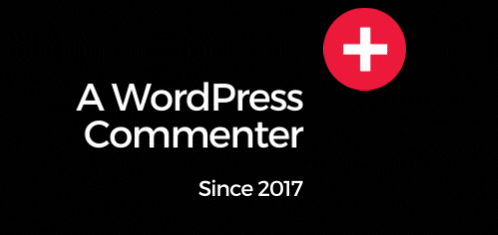New FAIR Project Aims to Decentralize WordPress.org Services, Backed by Linux Foundation and Hundreds of Contributors
A coalition of WordPress contributors, open source organizations and businesses have launched a project they hope will reshape how WordPress sites connect to the wider ecosystem — and remove dependency on WordPress.org while securing the project’s future.
Known as FAIR — Federated and Independent Repositories — the project is essentially a plugin that can be installed on any WordPress site, allowing users and hosting companies to connect to decentralized repositories for core, theme, and plugin updates, translations, news feeds, and other hard-coded services that typically rely on WordPress.org — a site owned and controlled by WordPress co-founder Matt Mullenweg.
FAIR was launched today at Alt Ctrl Org, an independently organized event held alongside WordCamp Europe 2025 in Basel, Switzerland.
While FAIR’s launch is no surprise — Yoast founder Joost de Valk first proposed the idea in December 2024 in response to Mullenweg’s public attacks following WordCamp US 2024 — what’s surprising is the scale of support behind it. The project has been developed over the past six months by a team of up to 300 people, including many veteran core committers and contributors.
Notably, the coalition includes the 20 anonymous contributors who signed an open letter to Mullenweg in December calling for governance reform.
The effort is being coordinated by de Valk and Crowd Favorite CEO Karim Marucchi, in partnership with the Linux Foundation, which is providing neutral infrastructure and governance support. It’s also being overseen by a three-person technical steering committee comprising longtime contributors Carrie Dils, Mika Epstein, and Ryan McCue.
“We’ve worked hard to ensure this isn’t just another vanity project,” de Valk told The Repository. “It has structure, transparency, and people with real experience guiding it.”
“This is about future-proofing the ecosystem,” added Marucchi. “We’re creating the infrastructure that should’ve existed already, and doing it in a way that puts power in the hands of the community.”
A new plugin designed to give users control
Dils, Epstein, and McCue say the plugin prioritizes transparency, privacy, and security. It removes unnecessary data sharing with WordPress.org, supports cryptographic signing, and introduces Decentralized Identifiers (DIDs) that help developers retain control over distribution, even if a plugin or theme changes hands or their repository is no longer trusted. Each package must also provide a security contact, a requirement aligned with the EU’s upcoming Cyber Resilience Act.
FAIR also addresses long-standing limitations in the WordPress plugin directory. It allows premium plugins to appear directly in the WordPress dashboard, surfaces details when plugins have been closed or removed, and gives hosts and enterprises tools to filter packages by PHP compatibility or block known vulnerabilities.
“The idea of a single canonical repo doesn’t match the reality of how WordPress is used today,” said McCue, the creator of the WordPress REST API. “We’ve built FAIR to unify what’s already happening, and to give users more secure, flexible options.”
CDN company Fastly is powering FAIR’s central infrastructure. According to the company’s Fast Forward Lead Tracy Hinds, “Fastly is proud to champion the FAIR Package Manager project’s efforts to build an ever more vibrant and decentralized WordPress ecosystem. By powering the package manager, we’re supporting the open source principles that drive creativity, collaboration, and the sustained growth of the open internet’s most impactful builders.”
Built in private, now public
FAIR has been developed in secret over the past several months to protect contributors from backlash. Today, many of those contributors have revealed who they are, appearing with de Valk and Marucchi during the project’s launch.
Mullenweg has previously reacted strongly to challenges to his leadership: in January, he banned de Valk and Marucchi from WordPress.org after the pair publicly called for an end to his benevolent dictator for life (BDFL) leadership of the project.
In December, core committers and contributors urged Mullenweg to pursue “community-minded” governance solutions in an open letter. In November, core committers raised concerns about a “culture of fear” in the project, citing Mullenweg’s “outsized control” and the potentially career-ending risks of speaking out.
de Valk and Marucchi said they hope FAIR will become a neutral, sustainable foundation for future infrastructure — regardless of whether WordPress leadership supports it. They also emphasized that it’s not a fork.
“We didn’t build this to divide the community,” said Marucchi. “We built it because the community needs better tools, and because governance should not be controlled by a single entity.”
Despite past tensions, both said they would welcome Mullenweg and Automattic to join the project. “There’s nothing stopping him from joining,” de Valk said. “If he sees the value in what we’ve built, FAIR could benefit everyone — including WordPress.org.”
Backed by open source leaders
FAIR has the backing of the Linux Foundation, a highly respected nonprofit that hosts more than 1,000 open source projects across industries and provides neutral governance frameworks for initiatives like Kubernetes and Node.js.
“The FAIR Package Manager project paves the way for the stability and growth of open source content management, giving contributors and businesses additional options governed by a neutral community,” said Jim Zemlin, Executive Director of the Linux Foundation. ”We look forward to the growth in community and contributions this important project attracts.”
Mike Dolan, SVP of Legal & Strategic Programs at the Linux Foundation, also told The Repository that in the short-term, the foundation would support the FAIR project to establish governance, a charter, and security infrastructure and communication tools. In the long-term, support will include events, communications and marketing, release management, best practices, and other help focused on running infrastructure, and the ability to recruit financial support to underwrite the cost of infrastructure and other activities.
FAIR has also gained support from other open source leaders, including Chris Aniszczyk, CTO of the Cloud Native Computing Foundation, who called FAIR “a progressive shift toward establishing an independent foundation for plugin distribution” in WordPress. Robin Bender Ginn, Executive Director of the OpenJS Foundation, described it as “critical, community-led infrastructure that strengthens the open source web.”
While several hosting companies are already testing FAIR and preparing to run it, others are watching closely to see how Mullenweg responds.
Mullenweg is scheduled to appear at WordCamp Europe 2025 in a closing fireside chat with WordPress Executive Director Mary Hubbard tomorrow. Whether or not he will engage with FAIR remains to be seen, but the coalition behind it has made clear that the door is open.
The FAIR repository is live on GitHub and accepting contributions.
The post New FAIR Project Aims to Decentralize WordPress.org Services, Backed by Linux Foundation and Hundreds of Contributors appeared first on The Repository.


